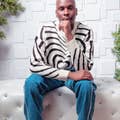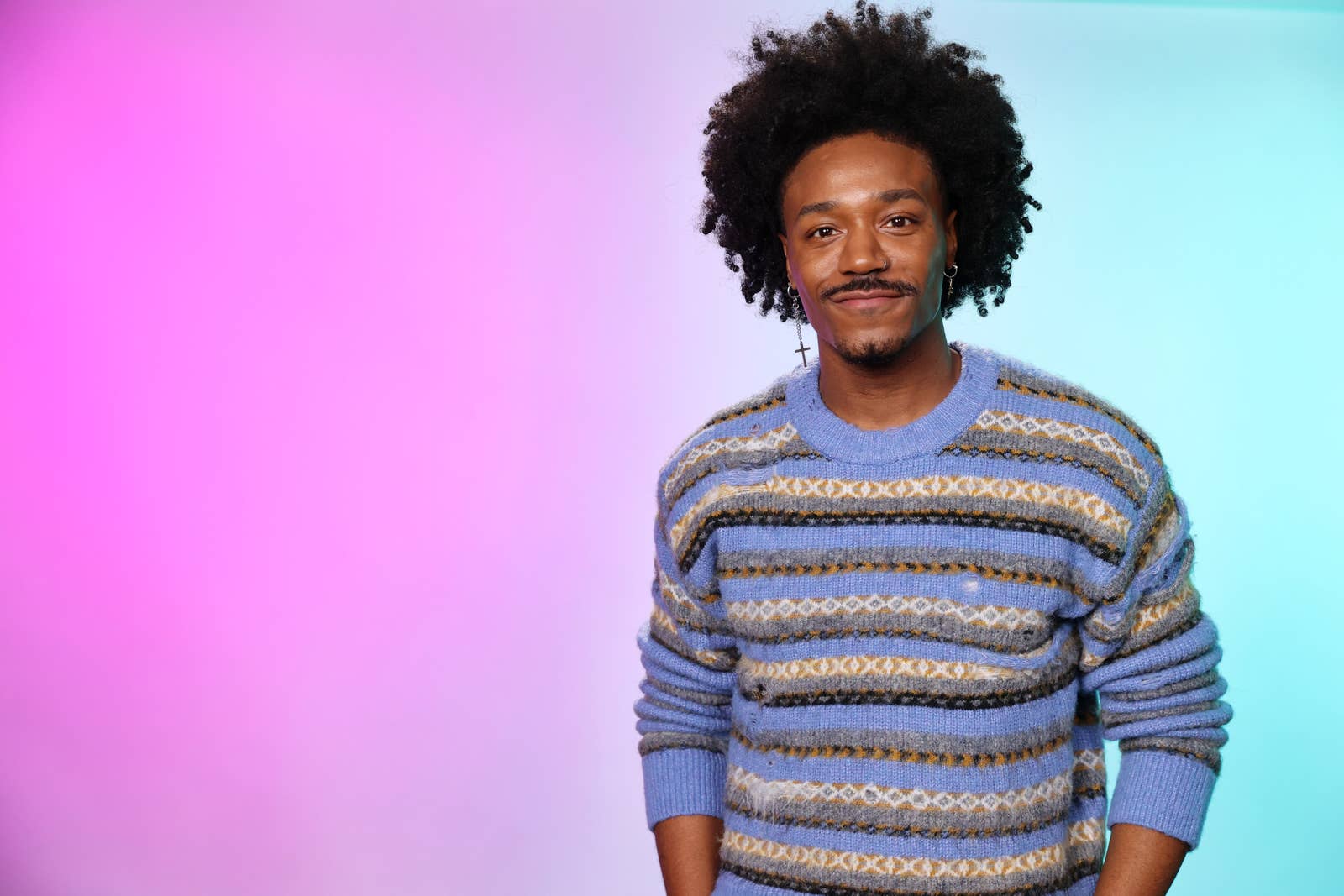
Dewayne Perkins has a clear vision for Hollywood: "I want to see more queer Black stuff," he candidly shared in a recent BuzzFeed interview. To drive this agenda forward, the Chicago native took matters into his own hands, co-writing the script for his highly anticipated 2023 comedy horror film, The Blackening.
"I felt like I wouldn't truly be a star of a movie unless I wrote it myself," he explained. As we celebrate Black History Month, we caught up with this multi-talented individual—actor, writer, comedian—who was recognized as one of Variety's top ten comics to watch in 2020. In our conversation, Dewayne delves into the inspiration behind crafting Black queer characters he longed to see on screen while growing up, drawing inspiration from fellow Black queer artists such as Janelle Monáe and Academy Award nominee Colman Domingo. Read more ahead.
Note: This interview has been edited for length and clarity.
BuzzFeed: In The Blackening, you play a Black queer character who isn't a stereotype nor does he fit into the "gay best friend" trope. Can you speak about the intentionality of that?
Dewayne Perkins: [While writing The Blackening], I wanted to recognize the gay best friend trope, and the idea of a person relegated to a position that only exists to hype up someone else's story. Then I thought, "I'm gonna focus on this person who usually doesn't get the attention so that when people see a gay best friend in a movie, they will be more inclined to be curious about their story." Art expands how people view queer people and how they can be used in film and TV. So that was the thought process behind my character.
And also, as a queer Black person who is an actor, there weren't many parts that I felt were afforded to me. I felt like I would not be a star of a movie unless I wrote it. And so that was also why the character was named Dewayne. I wanted to make it very clear that I'm creating a [new] world because this is not a world that anyone else has allowed me to play in.
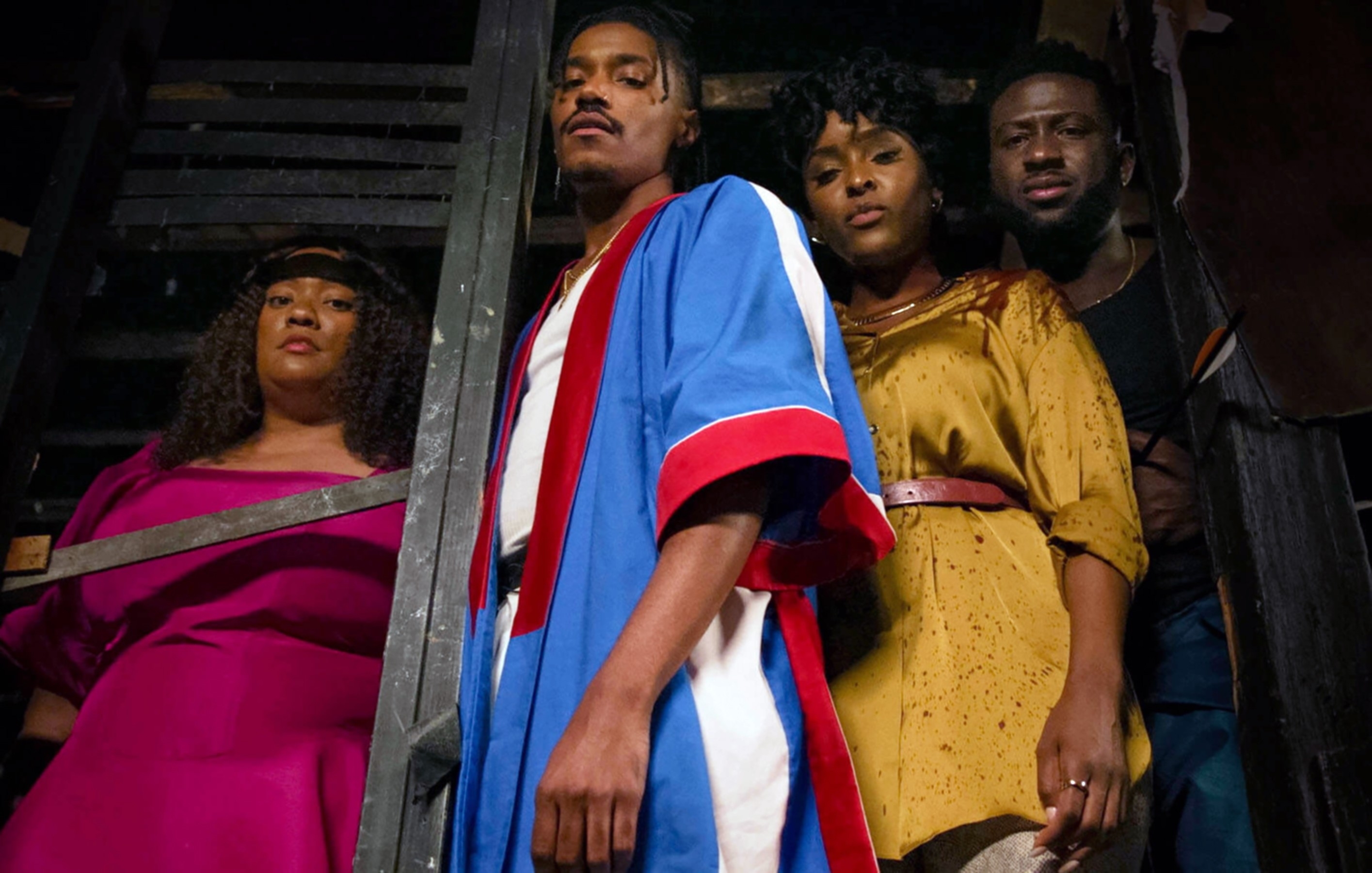
Has it dawned on you yet that The Blackening is now part of the canon of films that feature a Black queer lead character?
I don't think I went in writing with the idea of, "This is going to be impactful." I was just trying to live in the moment. The fact that it has been received in the way that it has ... I still feel I have not processed it yet because I'm still trying to live in the moment or else I'd be too consumed by the reactions.
It's been dope and kind of mind-blowing to have this movie be a part of the conversation of horror as a reference to Black people generally. It was the first time in my life that I thought, "This is what a legacy is." Being able to create something that has an impact in a zeitgeist, pop culture kind of way.
"I had an agenda. I wanted to see more queer Black stuff."
Has there been someone in the industry who you were most surprised to learn is a fan of your work?
I got a DM from Colman Domingo. I met him for the first time in person a couple of days ago. It was just a very beautiful moment because he's an artist that I look up to. I think he's so talented. I think he has helped with representation. When I was younger — and then coming into this business — I felt isolated. I had an agenda. I wanted to see more queer Black stuff. It felt like some of that was on my shoulders.
As I started to do more, I started to feel like this is not just a fight of my own, that there are so many Black queer people who've been trying to create visibility and representation. I think Colman has done such an amazing job creating space and creating a lane for the people behind him. For him to say that he was such a fan of my work, he's somebody that I was very happy and surprised to meet.
"I'm not a fan of being the token."
As a comedian, when was the first time you realized that you were funny?
When I was writing for a show called The Break with Michelle Wolf on Netflix. I remember that was my first job and I was the only Black person on this staff. It was very hard because I was thinking, "I'm not a fan of being the token." [I] helped [Michelle] write some of the jokes [for] the White House Correspondents Dinner that year. There was a joke that I wrote that basically called Sarah Huckabee Sanders the archetype of white women. It was chosen as one of the best jokes that year by the New Yorker.
At that moment, I realized no one else on this staff could have written that joke. My point of view is why I'm funny. My existence and my lived experience are what makes me great. That was a very validating moment at the beginning of my career that I've always remembered when I'm entering new spaces: nobody can do what you can do, because you are you, period.
When did you know acting was your calling?
I was very tiny in elementary school and kind of feminine. I had a stutter. I was bullied heavily. Going into high school, I thought, "I've watched enough TV, I'm pretty smart. I can figure this out." I created identities for myself to choose which one was the safest, and which one was going to get me what I needed. In my freshman year, I was a football player. Eventually, I realized that was not fun so I quit and I joined my school's dance team. At that point, I thought, "Oh, too gay! Everyone's gonna know." So I quit.
In my junior year, I found improv. I thought, "Okay, cool. This is cute. I could play a bunch of different people." My improv teacher was also the director of musicals so I started doing musical theater. I thought, "I like doing this." She convinced me to go to an acting conservatory for college. By senior year, I thought, "I enjoy what I'm doing. This feels closer to me. I'd rather go down this road than any road I've done so far." It felt the closest to happiness.
"I create my best work when I'm happy and inspired.
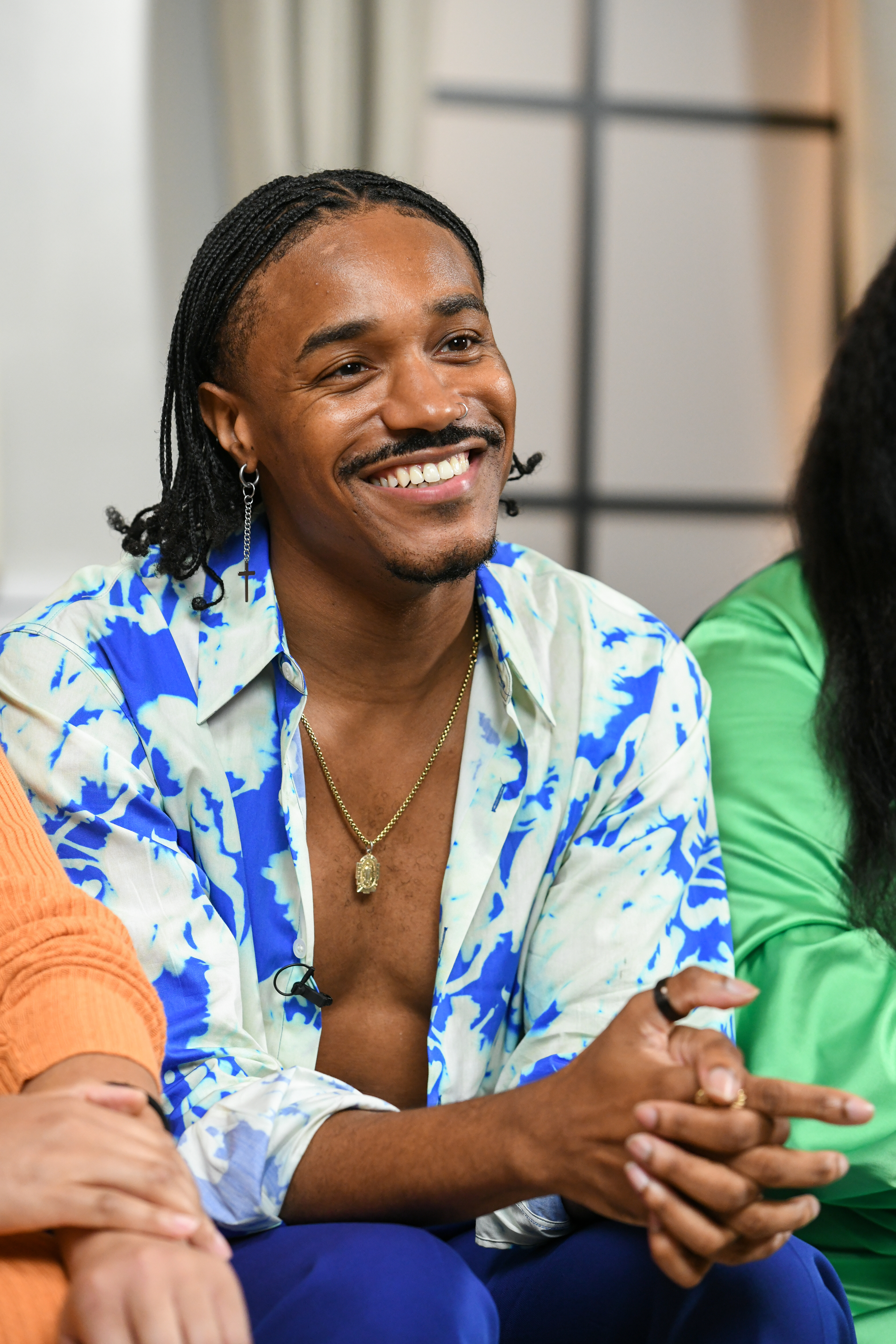
As a Black queer person, it can be challenging to center joy at times. How do you prioritize joy in your daily life?
Wow, what a great question. I create my best work when I'm happy and inspired. Therefore, part of my work is to stay happy and inspired because if I'm not, my work is gonna be trash. It is a priority. Work-life balance is knowing how much of yourself to give and when you need to recharge.
I'm always looking for something new to do. I recently started taking archery classes and taking adult gymnastics. I'm obsessed with learning and trying to absorb as much information as possible because I think that gives me the tools to create a version of myself that is worldly and open to receiving.
Your family was very supportive when you came out as queer. How has that support shaped or influenced the work you create?
Even though I came out and my family was like, "Yeah, sure." I was thinking, "Why is this such a deep fear?" It was because I'd never seen it. I didn't see gay people in media, it was just such an absence that created such isolation. I remember having to sneak and watch The Real World. Karamo [Brown] was the first Black gay man I saw on TV. I was just so starved for anything. I had a strong connection to what representation did for me.
Coming out to my family made me realize how much more supported I would have felt if I was supported by the media that I was absorbing. And so I thought, "Well, that's my job." I want to be that person who creates art that makes Black queer people think, "Oh, this isn't as terrible as I thought it would be."
If you could go back and tell your younger self one thing, what would it be?
"You exist in a way that changes the world, good or bad. You have the power to do good. That is where you will find your power and that is where confidence comes from."
"I have a focus. I think creation is my weapon."

We have to talk about your impeccable fashion looks during the press tour of The Blackening. How do you use fashion to express your identity?
Fashion feels like a fantasy to me. Doing the press tour was the first time I ever got to dress without the confines of my financial standing. When a studio pays for you to look that way, it opens up the possibilities. Growing out my hair created a bigger canvas. I liked the look that I wore to the premiere of The Blackening. It was a caramel leather suit. I wore bantu knots [in my hair]. My inspiration that day was Naomi Niobe from The Matrix. I was trying to give Jada Pinkett-Smith's [character].
With so much going on in the country, from book bans to anti-LBGTQ bills becoming law across the United States, what keeps you hopeful about the future?
Making art. I have a focus. I think creation is my weapon. That's the thing about intentionality and why I think so much about the work that I'm doing because I do recognize the power it can have. I think of how it can be impactful in a way that lessens some of the intentional evil that is out in the world.
"I hope that the future generation doesn't have to fight as much."
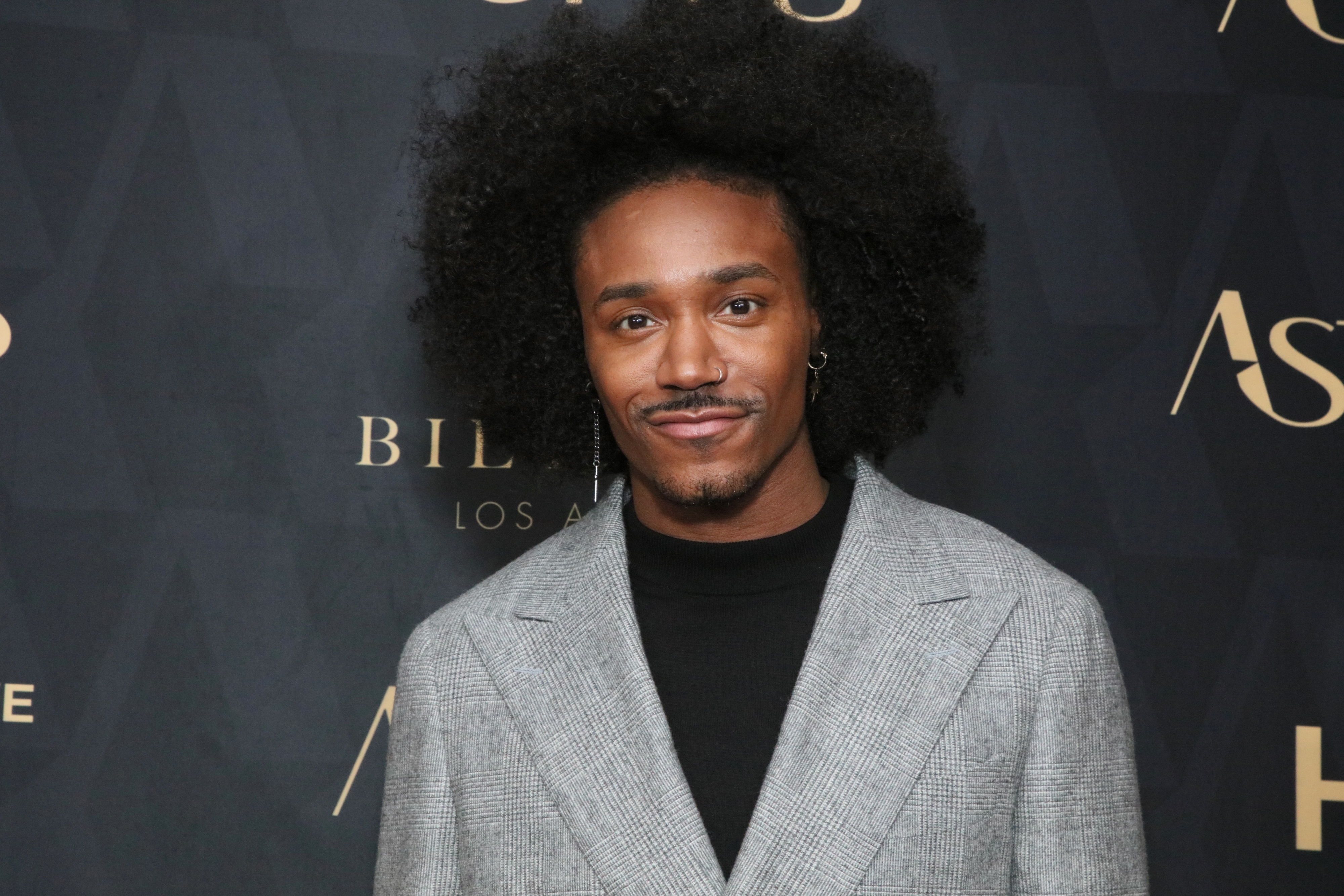
What is your hope for the next generation of Black and queer people?
I hope that they have the freedom to move past the generic. I think that there is such a simplistic look at queerness and Blackness. For example, focusing on coming out stories. Yes, that is important. There's also a lot of other material. What comes after that? The ability to feel full and not only have a point of view that is through a lens of straightness or whiteness.
I hope they can lean into themselves in a way that feels authentic and doesn't feel like a fight. I don't think people realize how much energy fighting takes. That energy takes away from the art you are trying to create. I hope that the future generation doesn't have to fight as much so that they have that surplus energy to create things that they want to create.
Who is your Black queer icon?
Janelle Monáe. The way she creates art, from music to movies, and still lives with a very in-your-face freedom of who she is and what she does is very powerful. I went to her concert and saw the spirit of love. I went to Essence Fest where she performed "Lipstick Lover." There were two older women next to me, and one of them asked, "Did she just say she likes lipstick on her neck?" I love that Janelle's identity is being forced to be seen. Yeah, she loves women. Just being able to exist with that freedom, I think, is so essential for people to see.
Lastly, what does Black History Month mean to you?
Black History Month, to me, is like the Black version of The Purge, where Black people get to do whatever they want. That's how I exist every February. [I advise Black people to] do whatever you want, and everybody should just appease Black people. That's really what I think Black History Month should be. That's the agenda I'm going to keep pushing. [Laughs]
Thanks for chatting with us, Dewayne! Be sure to keep up with Dewayne Perkins here.
You can read more Black, Out & Proud interviews here.


